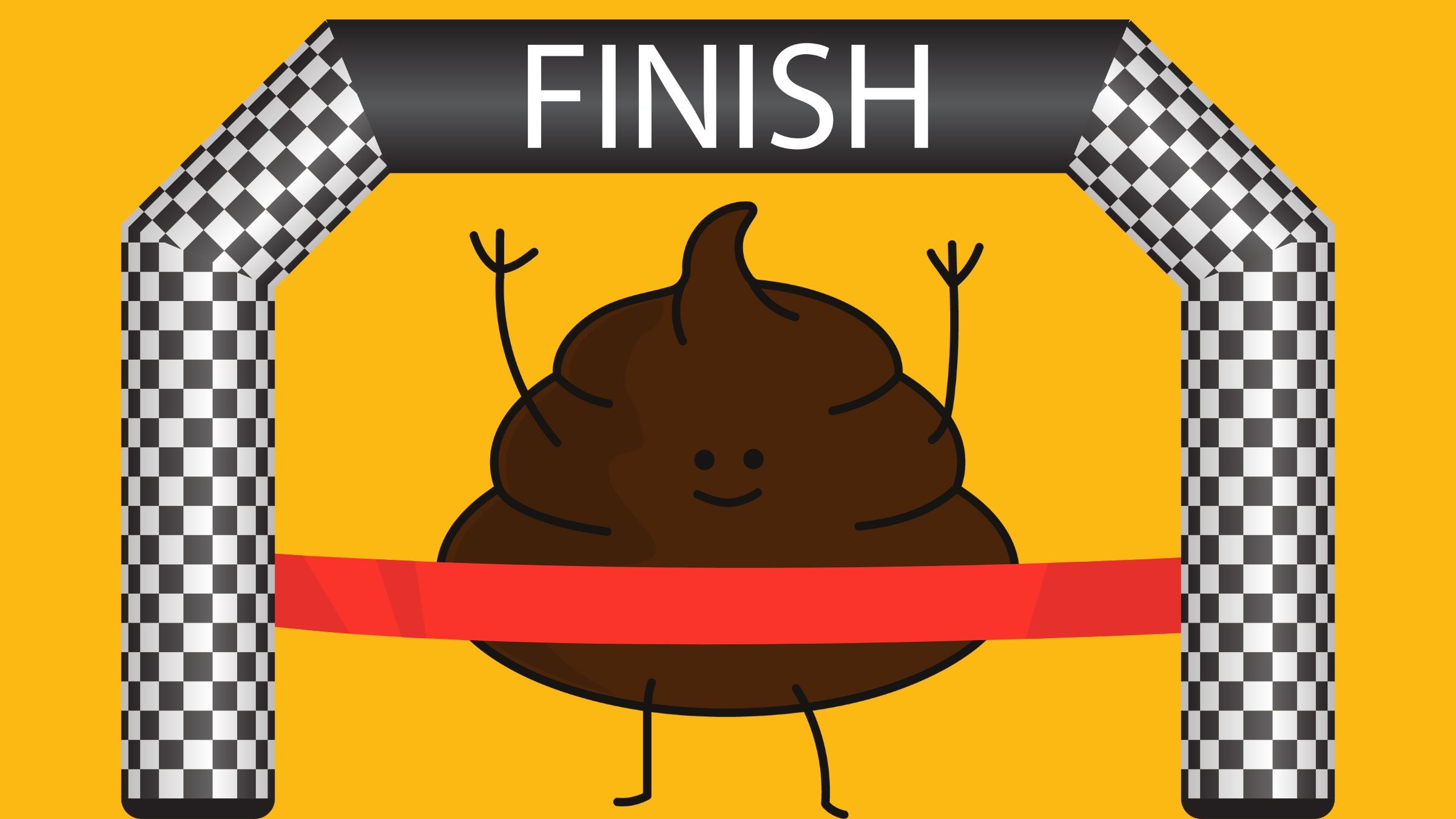Want to Be Number One? Try Going Number Two.

A study found that pooping before a race can improve endurance and overall performance. (Photo: Triathlete)
The urge to use the bathroom mid-stroke or stride is no stranger to most triathletes. Just head over to the strategically-placed battlefront of port-o-johns at any triathlon event, and you’ll find a line of athletes waiting to – you guessed it – poop.
In fact, it’s so common, that up to 70% of endurance athletes experience some form of gastrointestinal (GI) discomfort, or stomach upset, due to exercise. Likewise, a study found that as intensity increases, so do the odds. 93% of long-distance triathletes who competed in extreme conditions reported that they suffer from GI symptoms.
But what if alleviating discomfort, or simply beating the odds of having to go during your workout, wasn’t the only logic behind the science of defecation? What if pooping could improve your performance in other ways?
After speaking with Dr. Wei Chen-Chan, who specializes in triathlon and sports training, we learned that going number two has surprising benefits when it comes to endurance. Whether nature calls during a speedy track session, or the race-day jitters get the best of you, here’s how the next time you go could optimize your performance.
Why study this topic?
The drive to understand the complicated relationship between poop and endurance was personal for Dr. Chen-Chan. As a triathlete and triathlon coach for both the University of Taipei and the national team in Taiwan, diving deeper into the human gut and brain also meant solving a performance puzzle not only for himself and his teammates, but also thousands of athletes, if not more.
“Gastrointestinal issues are commonly encountered by endurance athletes during races, and we also know from previous studies in neuroscience that there are relevant issues with the brain-gut axis. Personally, I have experienced gastrointestinal discomfort many times during races, regardless of whether it is related to bowel movements. We have been eager to identify the causes and overcome this problem,” said Dr. Chen-Chan.
What did the study find?
The study, which included 13 elite triathletes, found that defecation prior to cycling enhanced cerebral perfusion, therefore delaying fatigue. In other words, athletes who pooped before cycling at 80% VO2max, with a five-minute warmup prior, performed better because they were able to utilize oxygen more efficiently.
“We were surprised to find that after defecation, the blood distribution and oxygen saturation in the prefrontal cortex and intestines were even lower compared to the non-defecation condition,” Dr. Chen-Chan explained. “In our paper, we infer that defecation may increase the oxygen demand in other regions of the brain and enhance the tolerance to hypoxia in the lower gastrointestinal tract.”
To break it down, after defecating, blood flow to the prefrontal region of the brain increased, which is essential for high-intensity and longer lasting workouts. During exercise, the brain becomes increasingly deoxygenated, therefore it demands more oxygen to maintain high levels of energy output. Red blood cells, which carry oxygen to important organs in the body, including the brain, are key in this process. When your brain is not focused on bowel functions, it can concentrate more on transporting oxygen to vital organs, such as your brain, lungs, and heart.
“One of the most significant findings was made using a near-infrared spectroscopy (NIRS) device to examine blood oxygen distribution. It was observed that during high-intensity exercise, the lower gastrointestinal region experienced hypoxia and ischemia,” he further explained.
In other words, whether athletes pooped prior to exercise or not, they experienced hypoxia, or low oxygen, and ischemia, restricted blood supply, to the lower intestine, which according to Dr. Chen-Chan, opens doors to further research in this field.
So how does this translate to your own workout regimen or race-day performance?
Whether it’s to avoid an upset stomach, or increase blood flow to the brain, it’s always best to poop before you start exercising. However, a 90-minute timeframe is recommended if you want to reap the benefits.
“We recommend that athletes engage in defecation approximately 90 minutes before a competition, as it can have beneficial effects on brain-gut function during the sporting event,” said Dr. Chen-Chan.
Although going poo on cue is not always an easy task, there are simple steps to take that could help with routine bowel movements. Experts suggest staying hydrated, minimizing stress, getting enough sleep and eating a high-fiber diet that consists of fruits, vegetables, and whole grains to help keep you regular.
RELATED: Ask Stacy: Should I take Anti-Diarrheal Meds Before a Race?